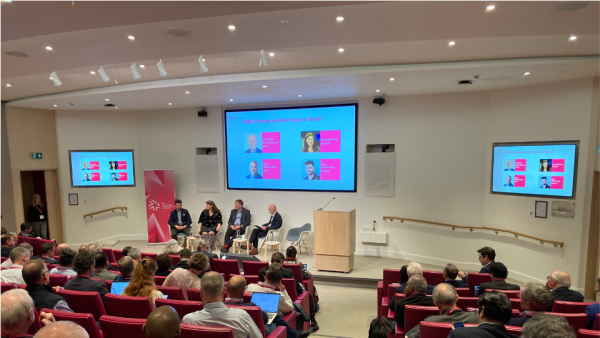
The UK’s telecoms market is thriving, but understanding how the ecosystem is innovating can be difficult, especially considering the rapid advancements in academia. UKTIN is creating reports as part of our Market Research Insight series to delve into the telecom subsectors. The third report has just been published, focused on non-terrestrial networks in telecoms.
Non-terrestrial networks (NTN) are integral to developing next-generation multi-layer networks, enabling global connectivity and resilience across application areas – including enhancing disaster response, supporting remote sensing and navigation, and enabling new scientific discoveries. The UK is also host to a burgeoning space sector, of which around 14 percent of income is delivered by fixed and mobile satellite communications services (SATCOM) according to the Size and Health of the UK Space Industry 2023 report.
This UKTIN report presents insights into research, development and innovation (R&D&I) activities relating to NTN in the UK. A recent finding from Euroconsult projects a strong growth trajectory for the NTN market, forecasting that the NTN segment of the global Satellite Communications Market will be worth over $1 billion by 2027.
As discussed in the report, converging terrestrial networks (TNs) and NTNs is integral. However, please refer to the UKTIN Market Research Insights Report on Wireless Networks for in-depth TN analysis.
Nathan White, Senior Business Strategy Consultant at Satellite Applications Catapult and one of the report’s authors said, "non-terrestrial networks are critical to delivering universal connectivity. They will enhance service accessibility and digital inclusion by enabling satellite communication services for homes, businesses, and public services, while stimulating economic activity and improving access to healthcare, education, and other essential services. Achieving these benefits is not without challenges. NTNs are often part of larger, complex projects that demand a long-term approach. Private sector investment will be key to helping the UK scale its presence in this area, but a shift in mindset from short-term gains to long-term value is essential. This report looks at the current focus of funding for NTNs in the UK, alongside opportunities to capture and challenges to address in the years ahead."
Report highlights
The report focuses on quantitative and qualitative data on topics of interest to the UK telecoms community and the UKTIN Non-terrestrial Networking Technologies Expert Working Group. Other references include emerging areas of relevance and use cases such as direct-to-device connectivity, AI for network optimisation and cybersecurity.
Funding: An estimated £378 million has been allocated to R&D&I projects relevant to non-terrestrial networking technology in the UK between 2017 and 2023, with UK government-funded programmes (excluding European Space Agency contributions) accounting for £151.64 million (40.1%), emphasising the value of NTNs to the UK’s economy and society. UKRI, UKSA, EPSRC and Innovate UK have also provided funding. Despite this, long-term industry funding will be critical – the need for substantial financial investments is underscored by the complexity and high costs associated with satellite technology development and deployment.
Convergence: Deployment costs in hard-to-reach areas can make terrestrial networks expensive, especially for last-mile coverage, positioning satellite communications as a practical alternative. NTNs, particularly in Low Earth Orbit (LEO), extend coverage to remote and underserved areas where traditional infrastructure is costly or impractical. LEO satellites' closer proximity to Earth enhances NTNs by delivering lower latency and improved communication quality compared to GEO satellites.
International activity: As NTNs become increasingly integrated into global communication networks, data sovereignty will be crucial for national security and privacy. Routing traffic through other nations comes with higher risk.
Scaling: Despite the UK’s strong track record in innovation, scaling these innovations into large, successful businesses presents a challenge. This issue is particularly pertinent in the context of NTNs, where the business model and business case for UK focused solutions remains unclear. Successful commercialisation will likely depend on the involvement of the MNOs. Thankfully, there is a growing interest in integrating NTNs with consumer devices, paving the way for broader applications in the future, although these are often global companies (e.g. Apple & Globalstar partnership for iPhones)
Access the report in full here.









